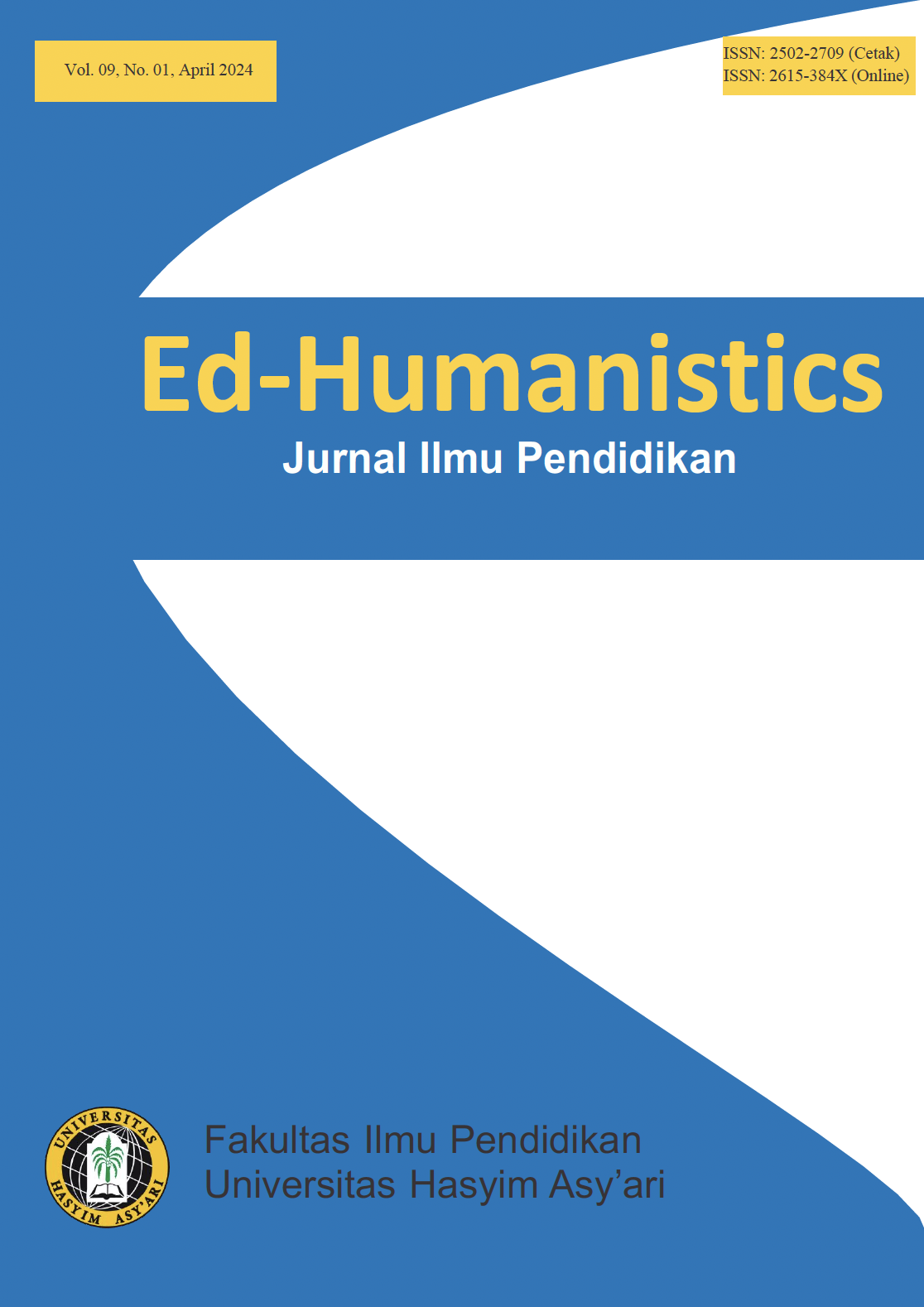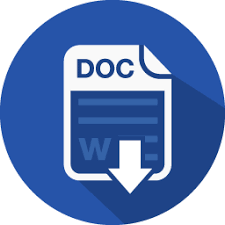The Effectiveness of Using Conversational Video-Based Learning to Increase Vocabulary Mastery
DOI:
https://doi.org/10.33752/ed-humanistics.v9i01.6107Abstract
This research aimed to find out the effectiveness of using Conversational Video-based Learning to increase Students’ vocabulary mastery. It used Pre-Experimental Design with one group pre-test and post-test design. the 7th grade E students’ academic year 2023-2024 SMP A. Wahid Hasyim Tebuireng, Jombang with a total of 32 students. The result showed that vocabulary of SMP A. Wahid Hasyim was still considered lacking with mean score of the pre-test is 53,5938. After being treatment, the students’ vocabulary is increased after using Conversational Video-based learning with the mean score of the post-test 77,34375. There is significant difference between Students’ vocabulary mastery before and after being taught by using Conversational Video-based Learning. By using descriptive analysis test, the normality test, and the Paired Samples Test showed that a significant value (2-tailed) of 0.000 the data are less than (<0.05) so it can be said that the meaning that H0 is rejected and H1 is accepted. In short, this means that conversational video-based learning as the media is effectively applied in improving students' vocabulary mastery at SMP A. Wahid Hasyim Tebuireng Jombang.
Downloads
Downloads
Published
How to Cite
Issue
Section
License
Copyright (c) 2024 Bian Selviana Ananta, Ria Kamilah Agustina

This work is licensed under a Creative Commons Attribution-ShareAlike 4.0 International License.
1. Proposed Policy for Journals That Offer Open Access
Authors who publish with this journal agree to the following terms:
- Authors retain copyright and grant the journal right of first publication with the work simultaneously licensed under a Creative Commons Attribution License that allows others to share the work with an acknowledgement of the work's authorship and initial publication in this journal.
- Authors are able to enter into separate, additional contractual arrangements for the non-exclusive distribution of the journal's published version of the work (e.g., post it to an institutional repository or publish it in a book), with an acknowledgement of its initial publication in this journal.
- Authors are permitted and encouraged to post their work online (e.g., in institutional repositories or on their website) prior to and during the submission process, as it can lead to productive exchanges, as well as earlier and greater citation of published work (See The Effect of Open Access).









 Template
Template


